26
Feb
2023
Low Muscle Tone And Your Child – What You Need To Know
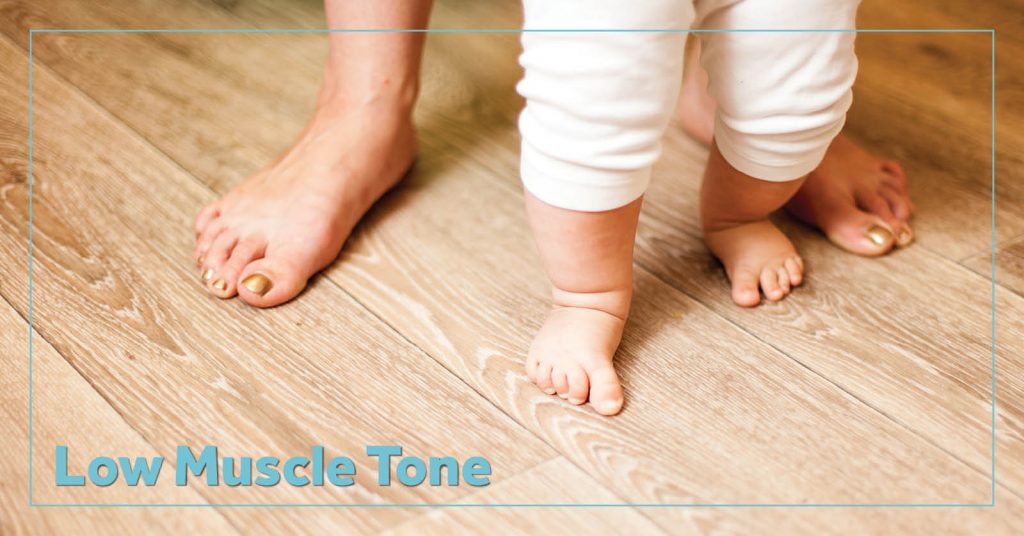
Low muscle tone and kids. That combination causes parents all over the world to ask questions:
- Will low muscle tone keep my child from having a normal life?
- What will this mean for the future?
- How can I help?
If you’ve recently received the hypotonia diagnosis, your head is probably swimming. And that’s ok. Your baby will need extra help and patience at times, but that doesn’t mean he or she can’t achieve great things.
Here are answers to questions you’re asking.
What Is Low Muscle Tone?
It goes by a variety of different names:
- Hypotonia
- Weak muscle tone
- Floppy baby syndrome
- Floppy infant syndrome
But no matter which words are used, it refers to a decreased level of tone in your child’s muscles.
What does that mean? Take a second to relax your arm. Now pinch your bicep. That tension you feel is muscle tone. Even when they’re not being used, muscles have a certain tightness to them.
But for kids with low muscle tone, that tension is reduced. Muscles feel too soft and too relaxed. That’s where the comparison to a ragdoll comes from. Limp limbs. Soft tissue. Decreased stability.
It’s important to remember that muscle tone is a spectrum. Each child is impacted differently. For some kids, it’s a mild nuisance. For others, it’s an obstacle that has a significant influence on daily life
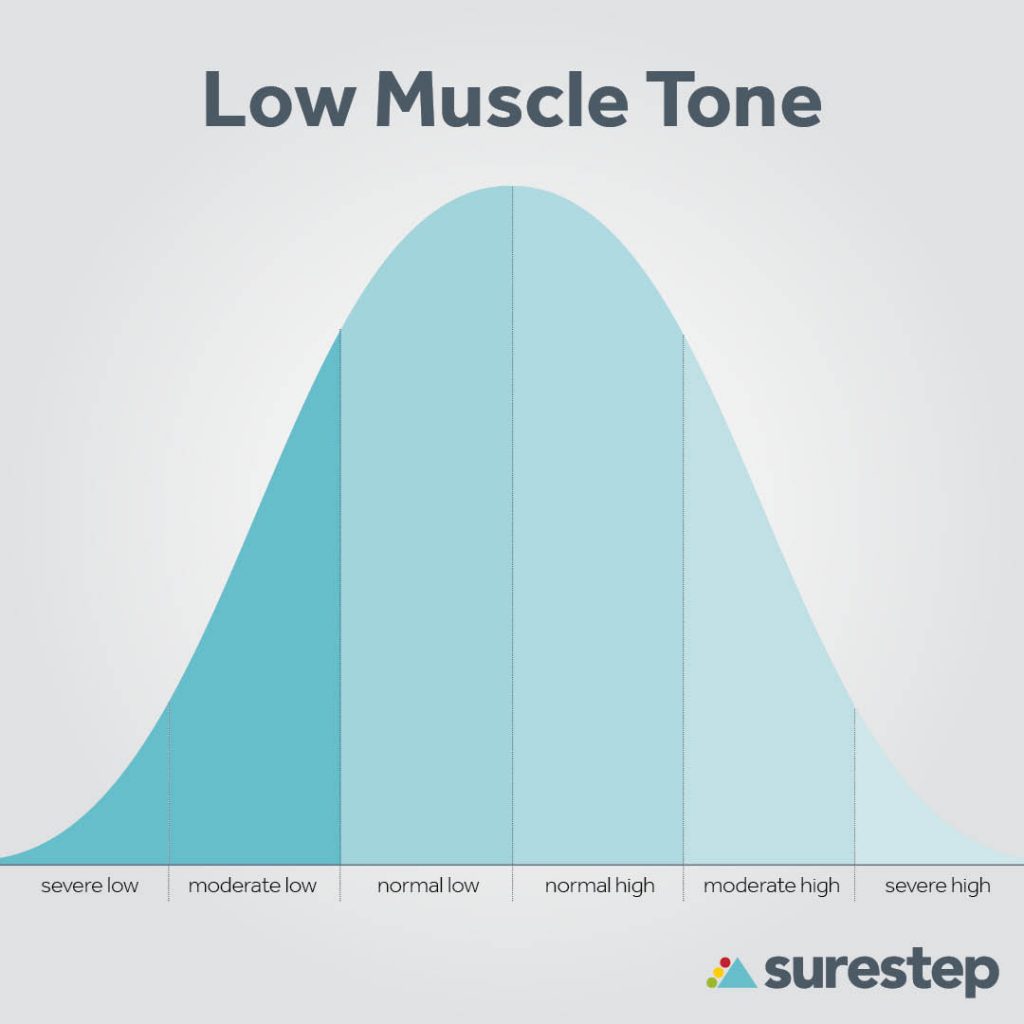
This may sound like a long-winded way to describe muscle weakness. But there’s a big distinction between tone and strength.
What’s The Difference Between Muscle Tone and Muscle Strength?
Muscle tone is the level of tension in muscles at rest.
Muscle strength is the amount of force a muscle exerts against resistance.
You can think of it as strength is active, tone is passive. And because they’re different, simply gaining strength won’t increase tone. What your child needs is stability.
How Do I Explain It To Family and Friends?
Once you understand the basics, the next challenge is talking about hypotonia with other people.
For a quick, visual explanation, grab a rubber band.
You’re likely to have plenty of family and friends who are supportive. But it’s not uncommon to butt heads with a few who are stubborn and refuse to accept the truth.
Yes, it’s real. It’s not imaginary or just an excuse. And it’s nobody’s fault.
What Causes Low Muscle Tone?
There isn’t just one cause. Or a few. Or a few dozen.
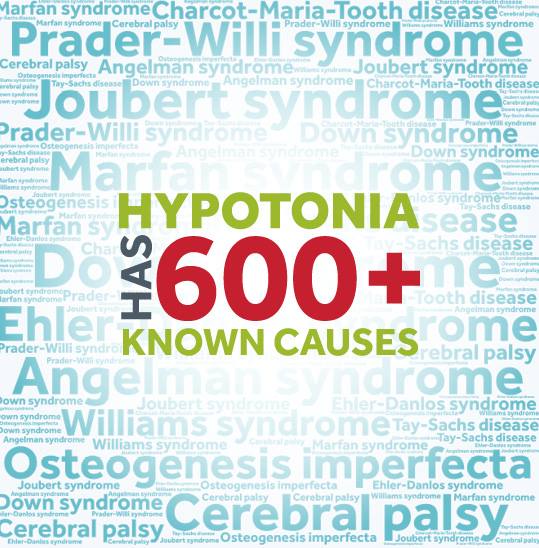
600+ medical conditions have been linked to low muscle tone. This list is far from exhaustive, but some of the most common causes include:
- Down syndrome
- Cerebral palsy
- Prader-Willi syndrome
- Angelman syndrome
- Marfan syndrome
- Ehlers-Danlos syndrome
- Osteogenesis imperfecta
- Joubert syndrome
- Smith-Kingsmore syndrome
- Charcot-Marie-Tooth disease
- Chromosomal abnormalities
Keep in mind that reduced tone is typically a symptom instead of a root cause.
If your child has hypotonic cerebral palsy, it’s the cerebral palsy that caused the hypotonia. Not the other way around.
But finding that root cause isn’t guaranteed, even with testing.
What Is Benign Congenital Hypotonia?
For many parents, there’s no mystery about what caused the hypotonia. If a child has Down syndrome, for example, low muscle tone is expected.
There is a clear cause and effect. However, that isn’t always the case.
Your child may have hypotonia without any known underlying diagnosis. This is called benign congenital hypotonia.
What Are Low Muscle Tone Symptoms?
It’s not a one size fits all sort of diagnosis. It varies, in both severity and specifics.
Common signs include:
- Pronation
- Impaired mobility
- Poor posture
- Breathing & feeding difficulties
- Delayed speech
- Poor reflexes
- Ligament & joint laxity
- Walking with a wide base
- Delayed gross motor skills development (crawling, jumping, etc.)
- Delayed fine motor skills development (grabbing toys, moving objects between hands, etc.)
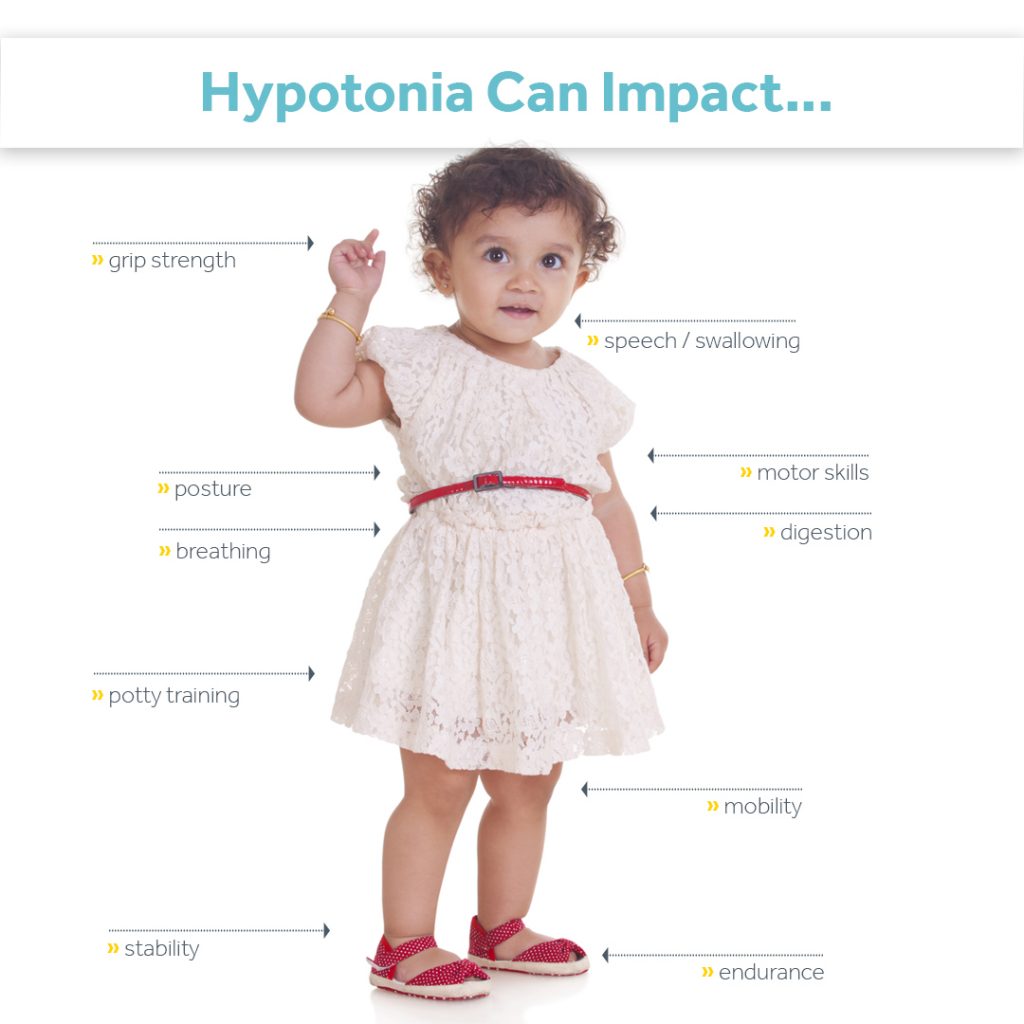 In addition, the impact of hypotonia can vary in different phases of life.
In addition, the impact of hypotonia can vary in different phases of life.
Low Muscle Tone In Babies
One of the most noticeable indications of hypotonia in babies is a lack of head control. Be mindful whenever you or anyone else is holding your little one. Limp limbs and feeding difficulties are also a possibility.
Low Muscle Tone In Toddlers
Developmental delays often become more noticeable as kids get older. Due to instability, your toddler may be slow to reach milestones like standing and walking. Clumsiness, exhaustion, potty training issues, and difficulties keeping up with peers are all common.

Low Muscle Tone In Children
As kids reach school age, you may notice a few new challenges in the classroom. Low muscle tone doesn’t impact your child’s mind or ability to learn. But it can make activities associated with learning more difficult, such as gripping a pencil and staying seated for long periods.
Common Questions You’re Asking
Don’t let misconceptions take root. Here are the answers to very common questions.
Will My Child Outgrow Low Muscle Tone?
No, it doesn’t just go away. That’s because muscle tone doesn’t really change.
Seeing first steps, jumping, and running may seem to suggest that the low tone days are behind you. But that’s not the case.
Kids are adaptable. Your child will reach milestones by working within the limitations hypotonia creates. That doesn’t mean the limitations are gone.
Is My Child Lazy?
Absolutely not.
Having low tone is exhausting. That’s a simple answer, not an excuse.
Your child’s muscles have to work overtime to keep up. Extra breaks and the occasional accommodations can be helpful.

Will My Child Ever Walk?
The vast majority of kids who have low tone do learn how to walk. Just do yourself a favor and throw out those timelines you read about parenting books.
Expect your little one to progress at his or her own pace. And celebrate every inch forward.
Is There A Cure?
No pill, procedure, or injection provides a cure.
Instead of looking for a quick fix, meet your child where he or she is at. That often means reaching out to get professional help. Physical therapy, occupational therapy, and orthotics are all great options.
Will My Child Have A Normal Life?
No two people have the same definition of normal.
Will your child face obstacles? Yes.
Will there be rough days? Absolutely.
Are there a lot of medical appointments in your future? Probably.
But there’s no reason hypotonia should rob your child of leading a happy, healthy, productive, and fulfilling life.
And here’s a positive, but no less real, perspective.
The challenges your child faces will create resilience and inner strength. Never forget that you’re raising a fighter.
What Are The Low Muscle Tone Treatment Options?
Physical therapy is a great place to start. Your child will be guided through a personalized series of activities designed to increase strength, coordination, and balance.
But often, therapy alone isn’t enough.
Kids tend to benefit most when physical therapy is paired with SMOs.
You can think of these little ankle braces as training wheels for kids who need a little extra help to get going.
What Makes Surestep SMOs Unique?
All SMOs may look similar, but they’re not the same.
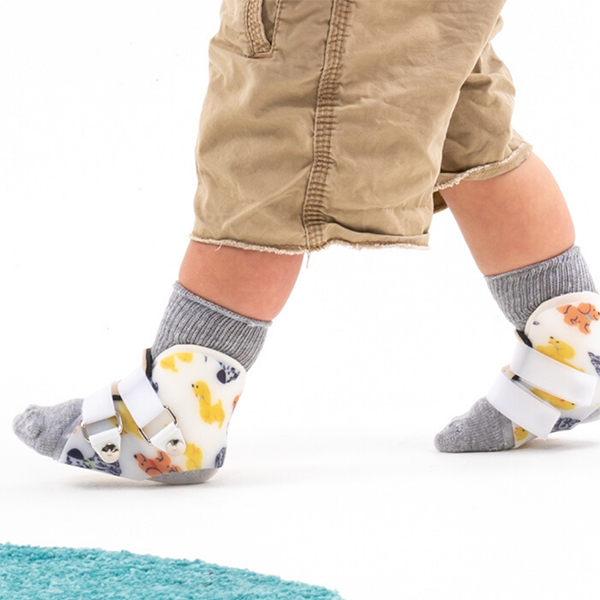
Unlike other SMO options, Surestep SMOs provide your child with a variety of exceptional benefits:
- Uniquely flexible and comfortable plastic
- Shortened footplates for more freedom of movement
- Modifications to meet your child’s unique needs
- 30+ fun patterns to choose from
- Fabrication from measurements instead of messy casts
Give your little one the best opportunity to crush milestones and catch up with peers. Find out how to order and ask for Surestep by name.
What Now?
One inchstone at a time.
That’s a common mantra within the low muscle tone community. It also provides a healthy perspective.
There will be good days ahead and some bad. But always remind yourself that every tiny step forward is real progress.
Will Surestep SMOs help my child's development?
